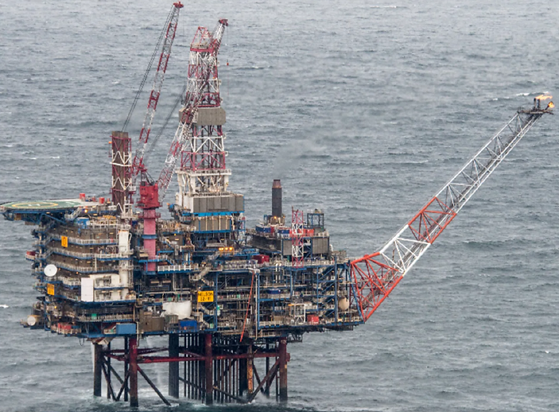
1. Introduction
In the shifting landscape of the global oil industry, few companies have embodied the spirit of British entrepreneurship and independence as powerfully as Enterprise Oil. Founded in 1982 and later acquired by Royal Dutch Shell in 2002, Enterprise’s two-decade journey tells the story of ambition, innovation, and strategic resilience in an increasingly consolidated market. Its rise marked an important chapter in the development of the United Kingdom’s offshore oil sector, particularly in the North Sea, where it became a symbol of national capability and commercial agility.
Even long after its absorption into Shell, Enterprise Oil’s legacy continues to influence both the corporate strategies of its alumni and the evolution of the North Sea energy basin itself. This article explores the company’s origins, growth trajectory, key projects, corporate culture, and lasting impact on the global energy landscape.

2. Founding and Early Vision (1982–1985)
Enterprise Oil was born out of a unique moment in the British energy story. In the early 1980s, the British government under Prime Minister Margaret Thatcher pursued a policy of privatization and deregulation aimed at transforming state-owned industries into competitive private enterprises. The company was created in the UK in the early 1980s as part of the privatisation of upstream oil assets originally held by British Gas Corporation. It floated on the London Stock Exchange in 1984.
William Bell was chairman at the formation of Enterprise Oil and with Graham Hearne as CEO, created a continuity of leadership which helped Enterprise Oil grow into a significant UK independent upstream company.
Graham Hearne served as Chief Executive (CEO) of Enterprise Oil from 1 March 1984 until 1991 when he transitioned to the role of Chairman.
3. The North Sea: A Proving Ground
During the 1980s and 1990s, the North Sea remained one of the world’s most important oil provinces, with the UK Continental Shelf producing millions of barrels of oil per day. Enterprise Oil became a key participant in this ecosystem, managing assets that were both technically challenging and commercially significant.
Among its most notable successes were developments in the Nelson, Telford, and Pierce fields, as well as its participation in the Alba and Scott fields. These operations helped demonstrate that a mid-sized independent company could manage complex offshore projects efficiently, even when competing against supermajors such as BP, Shell, and Exxon.
Enterprise also pioneered innovative project management approaches, including collaborative field development with multiple partners — a practice that helped to spread risk and accelerate production timelines. The company’s operational philosophy was defined by lean teams, rapid decision-making, and a culture that encouraged technical innovation and professional autonomy.
This model would later become a blueprint for other independents in the North Sea, such as Talisman Energy, Premier Oil, and EnQuest, all of which drew lessons from Enterprise’s ability to balance risk with reward.

Nelson Field
The Nelson Field represents one of the defining achievements in the history of Enterprise Oil and is central to understanding the company’s legacy in the North Sea. Discovered in 1988 in Block 22/11 of the UK Continental Shelf, Nelson was the result of a bold and calculated series of asset swaps and licence acquisitions that gave Enterprise full control of the prospect. This move was characteristic of the company’s entrepreneurial and independent spirit—one that sought to build value through technical capability and strategic positioning rather than sheer scale. The discovery proved to be one of the largest oil finds of the decade in the UK sector and provided Enterprise with both the material and symbolic breakthrough it needed to be taken seriously among major North Sea operators.
Nelson was more than a successful discovery; it was the project that transformed Enterprise from an ambitious newcomer into a mature operator. The company not only discovered the field but also led its development and operated it through to first oil in 1994. This was no small feat for an independent company competing against the likes of BP, Shell, and Exxon. Nelson’s development, centred on the Nelson A platform and supported by an integrated subsea network, demonstrated that Enterprise had the technical and financial strength to deliver a complex offshore project on schedule and at scale. The field’s design capacity—around 145,000 barrels per day—gave Enterprise a reliable production and cash flow base that underpinned its subsequent expansion in the North Sea and internationally.
Financially and operationally, Nelson was a cornerstone asset. Its output during the 1990s provided Enterprise with the liquidity to fund exploration and acquisition programmes elsewhere, while also enhancing its reputation among investors and partners. The success of Nelson elevated the company’s profile, turning Enterprise into a model for what an independent could achieve in a basin dominated by supermajors.
4. International Expansion and Strategic Growth (1990–2000)
While its roots were firmly in the UK, Enterprise Oil had global ambitions. By the early 1990s, the company began expanding into international exploration — a strategic move designed to diversify its portfolio and secure long-term reserves beyond the maturing North Sea basin.
Enterprise acquired and operated interests in Ireland, Italy, Norway, and Greece, and ventured further afield to regions such as Brazil, and the Gulf of Mexico. The company’s entry into the Italian and Norwegian markets, in particular, demonstrated its growing technical credibility and ability to manage partnerships with national oil companies and other independents.
In Ireland, Enterprise made a significant discovery in the Corrib gas field, which became one of the country’s most important natural gas developments. Although commercial production did not begin until after Enterprise’s acquisition by Shell, the project was emblematic of the company’s forward-looking exploration strategy and its ability to take on high-stakes frontier projects.
The late 1990s also saw Enterprise take a leading role in the energy transition within the oil sector, exploring opportunities in natural gas and investing in technologies aimed at improving reservoir recovery and reducing environmental impacts. Its strategy was characterized by disciplined growth and an emphasis on shareholder returns, positioning it as a credible, mid-sized global independent.
5. Corporate Culture and Leadership
A defining feature of Enterprise Oil was its distinctive corporate culture. It combined the entrepreneurial mindset of a small independent with the technical rigor of a major oil company. Employees often described the company as “lean but ambitious,” with a flat management structure that empowered engineers, geologists, and project managers to make decisions quickly and creatively.
Enterprise’s leadership placed great emphasis on integrity, technical excellence, and operational safety — qualities that helped build trust among partners and host governments. The company’s relatively small size also meant that it could adapt rapidly to market changes, a key advantage during periods of oil price volatility in the 1980s and 1990s.
Many of the company’s alumni went on to senior positions across the global energy industry, carrying forward the lessons of Enterprise’s entrepreneurial approach. This diffusion of talent and expertise is one of the less visible but enduring aspects of the company’s legacy.
6. Acquisition by Shell (2002)
By the early 2000s, Enterprise Oil had become a significant force among European independents, with production exceeding 250,000 barrels of oil equivalent per day. Its strong portfolio, disciplined operations, and global reach made it an attractive acquisition target for larger players seeking to bolster their upstream reserves.
In April 2002, Royal Dutch Shell announced its acquisition of Enterprise Oil in a deal valued at around £3.5 billion. For Shell, the move strengthened its position in the North Sea and expanded its gas portfolio through Enterprise’s assets in Ireland and Italy. For Enterprise shareholders, the sale represented a premium return on investment after two decades of steady growth.
While some viewed the acquisition as the end of Britain’s most successful independent oil company, others saw it as a natural evolution — a recognition of Enterprise’s value and the maturity of its portfolio. The transaction also reflected a broader trend of consolidation in the oil industry, as mid-sized independents found it increasingly difficult to compete with the capital scale and technological demands of deepwater exploration and production.
7. Enduring Influence and Legacy
The legacy of Enterprise Oil extends well beyond its brand name. The company’s operational and cultural imprint can still be felt across the energy sector in several key ways:
i. The Rise of the “Independent Operator” Model
Enterprise demonstrated that mid-sized independents could operate large offshore assets successfully, setting a precedent for future players in the North Sea and beyond. Its project management philosophy — focusing on efficiency, partnership, and innovation — influenced a generation of companies that followed similar paths.
ii. Talent and Leadership
Enterprise served as a training ground for some of the industry’s top talent. Many of its former executives and engineers went on to lead major oil companies, government energy agencies, and private equity-backed ventures. The company became known as a “leadership academy” for the oil sector.
iii. The Corrib Legacy
The Corrib gas field in Ireland remains one of Enterprise’s most significant contributions to regional energy security. Though completed under Shell’s ownership, the project’s origins and design were firmly rooted in Enterprise’s exploration strategy.
iv. National Identity and Energy Policy
Enterprise’s creation represented a turning point in British energy policy — the shift from state ownership to market-driven enterprise. Its success helped validate the idea that privatized, independent companies could thrive in complex industrial sectors traditionally dominated by state or multinational giants.
8. Conclusion
The story of Enterprise Oil is, at its heart, the story of ambition meeting opportunity. From its origins as a government spin-off to its emergence as a respected international operator, Enterprise represented a unique chapter in Britain’s industrial and corporate history. Its two decades of operation demonstrated how innovation, technical excellence, and entrepreneurial spirit could thrive in a highly competitive global industry.
Though the Enterprise name has faded from the corporate map, its legacy continues to shape the way the energy sector views independence, efficiency, and adaptability. As the North Sea enters a new era of decarbonization and repurposing, the pioneering mindset that once defined Enterprise Oil remains as relevant as ever — a reminder that bold ideas, when matched with technical skill and strategic vision, can leave an enduring mark on an industry.
Graham Hearne and the Leadership Legacy at Enterprise Oil

1. Introduction: A Chairman of the New British Independent
Graham Hearne served as Chairman of Enterprise Oil from 1991 to 2002, effectively spanning the company’s entire independent life. He joined shortly after Enterprise’s flotation on the London Stock Exchange, and he guided the board and senior management for nearly two decades, through cycles of oil price volatility, North Sea maturation, and international expansion.
William Bell was chairman at the formation of Enterprise Oil and, with Graham Hearne as CEO, created a continuity of leadership which helped Enterprise Oil grow into a significant UK independent upstream company.
Graham Hearne served as Chief Executive (CEO) of Enterprise Oil from 1 March 1984 until 1991, when he transitioned to the role of Chairman.
Hearne’s tenure was longer than any of Enterprise’s CEOs — and his leadership provided the continuity, governance stability, and strategic oversight that enabled Enterprise to grow from a recently privatized start-up into one of Europe’s most respected independent oil companies.
2. Early Background and Appointment
Before joining Enterprise Oil, Graham Hearne QC had built a distinguished career as both a lawyer and businessman. He trained as a barrister and later transitioned into corporate management, bringing a unique blend of legal insight and commercial acumen.
When Enterprise was created in 1982 from the production arm of the British National Oil Corporation (BNOC), the government sought to appoint a chairman who could:
- Guide the company’s transition from state ownership to private enterprise,
- Build investor confidence in a politically sensitive privatization, and
- Ensure strong corporate governance within the young organization.
Hearne’s combination of legal discipline, steady temperament, and understanding of public-private dynamics made him an ideal fit. By the time of Enterprise’s 1984 IPO, he was firmly established as the board’s guiding hand.
3. Post-Enterprise Career and Recognition
After the sale of Enterprise Oil in 2002, Hearne continued to serve as a non-executive director and chairman across multiple companies, including Braemar Shipping Services, Premier Oil, and Nexen Petroleum UK. He was also active in education and charitable work, supporting legal and environmental causes.
Hearne was appointed a Commander of the Order of the British Empire (CBE) in 1990 and was later knighted in 1998.
KeyFacts Energy: Company Profile
 KEYFACT Energy
KEYFACT Energy